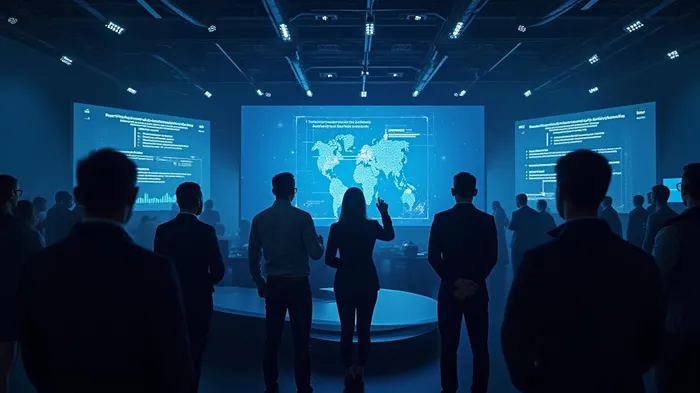AI Integration Creates 60% More Jobs Than Expected
Autonomous AI agents are increasingly being integrated into various industries, sparking debates about their impact on job markets. Contrary to popular belief, these agents do not eliminate jobs but instead create new opportunities for human involvement throughout their lifecycle. The development, deployment, and evaluation of autonomous AI agents require significant human intervention, leading to the creation of diverse job roles.
Autonomous AI agents, despite their advanced capabilities, cannot operate independently. They need human developers to build the underlying infrastructure, code algorithms, and prepare datasets for training. The accuracy of these agents depends on high-quality data, which necessitates human data cleaners, labelers, and evaluators. Additionally, human-supervised audits are essential to prevent harm from rogue AI agents, involving teams of management, policy workers, auditors, and technicians.
The collaboration between humans and AI agents is crucial for ensuring functional consistency and reliability. Humans bring nuanced societal understandings, logical inferences, and rational decision-making to the table, which AI agents lack. This collaboration helps in identifying biases, mitigating prejudices, and aligning AI agents with humanitarian values and ethical standards. Human evaluation is critical in preparing datasets, assessing model accuracy, and interpreting output generation, ensuring that AI agents function better in real-life situations.
Pundi AI, a company driving AI innovation, empowers humans to contribute directly to the industry’s growth. By offering a decentralized data solution, Pundi AI provides equitableEQH-- opportunities for everyone, preventing large companies from monopolizing control over human-generated data. This approach allows humans to maintain control over their data and directly benefit from using it for AI model training, creating new AI-related job options.
According to a GartnerIT-- survey, companies will abandon over 60% of AI projects by 2026 due to the unavailability of AI-ready data. Solutions like Pundi AI’s AIFX empower developers and users to create AI-ready data assets and trade them on-chain, offering financial incentives for curating robust datasets. This decentralized approach democratizes the AI industry by redistributing data and model training among people from diverse backgrounds, reducing structural bias, and creating new jobs.
Beyond pre-processing datasets, AI agents also require human assistance during the in-processing (inference) and post-processing (deployment) stages. Methods like Reinforcement Learning with Human Feedback (RLHF) and Human-in-the-Loop (HITL) are necessary to evaluate AI agents during training or real-time operations for effective output generation and model optimization. Interactive debugging helps human auditors scrutinize AI agents’ responses and evaluate them against societal benchmarks of fair decision-making. In sensitive applications, a hybrid method combining expert human-level validation with machine-generated answers is used to remove uncertainties and build trust.
Human intuition and creativity are key to developing new AI agents that can autonomously function in society without causing any harm. Human supervision ensures optimal performance for high-performing agents in independent settings, enhancing their general intelligence. Thus, the integration of autonomous AI agents in various industries creates new job opportunities and fosters a collaborative approach between humans and machines, driving innovation and growth in the AI sector.

Quickly understand the history and background of various well-known coins
Latest Articles
Stay ahead of the market.
Get curated U.S. market news, insights and key dates delivered to your inbox.



Comments
No comments yet